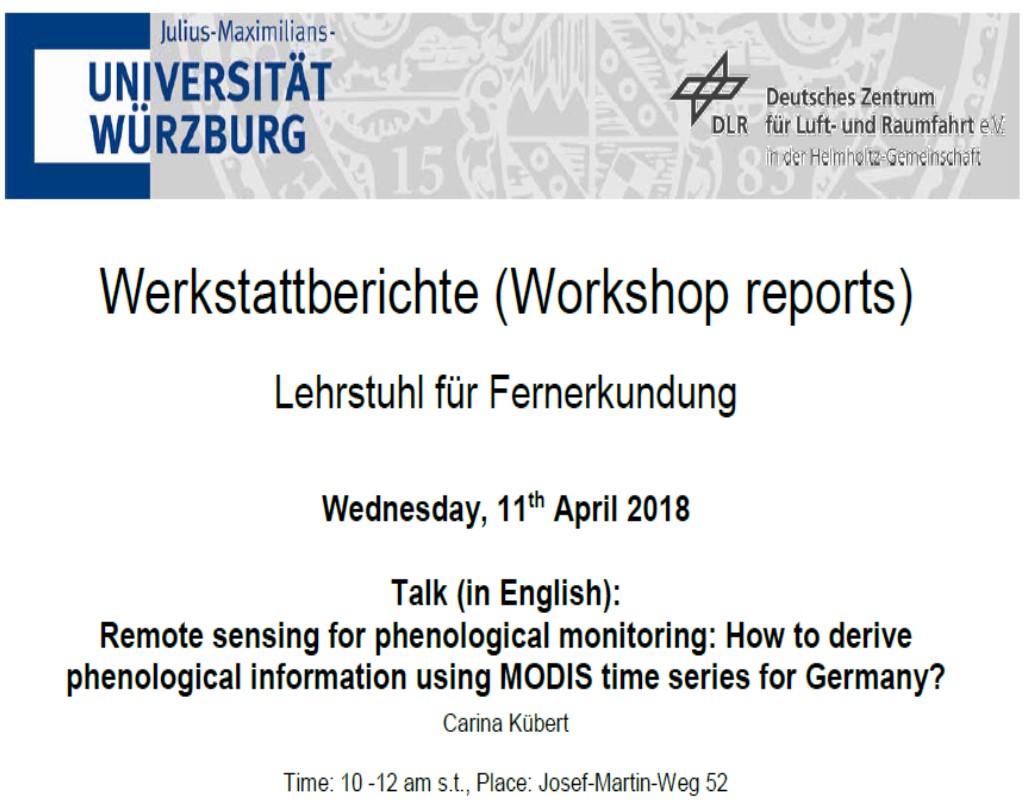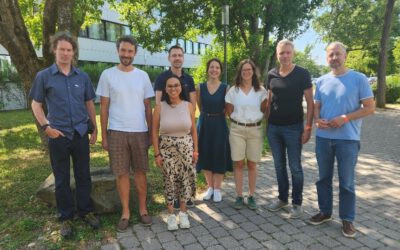Remote sensing for phenological monitoring: How to derive phenological information using MODIS time series for Germany?
On April 11, 2018, our colleague Carina Kübert will address different questions on how to derive phenological information from time series analysis using MODIS data.
Abstract
“Phenology is perhaps the simplest process for changing the ecology of species as a response to climate change.” (Rosenzweig et al. 2007)
There are several approaches to track phenology in the context of global change. Land Surface Phenology (LSP) deals with methods to monitor vegetation phenology using time series data from Earth Observation satellites. Getting deeper into this topic, it becomes clear that it is not as simple as stated by Rosenzweig et al.: Which data should I use? Which method should I apply concerning filtering, which for outlier detection, which for deriving phenological metrics? What is the meaning of those metrics in an ecological point of view? This talk will give an overview of the modeling framework that helps answering those questions and will give recommendations on how to derive LSP for Germany.
Presenter: Carina Kübert
Date: Wednesday, 11th April 2018 Time: 10 – 12 am s.t. Place: Josef-Martin-Weg 52, Campus Hubland Nord
All interested persons are cordially invited!








